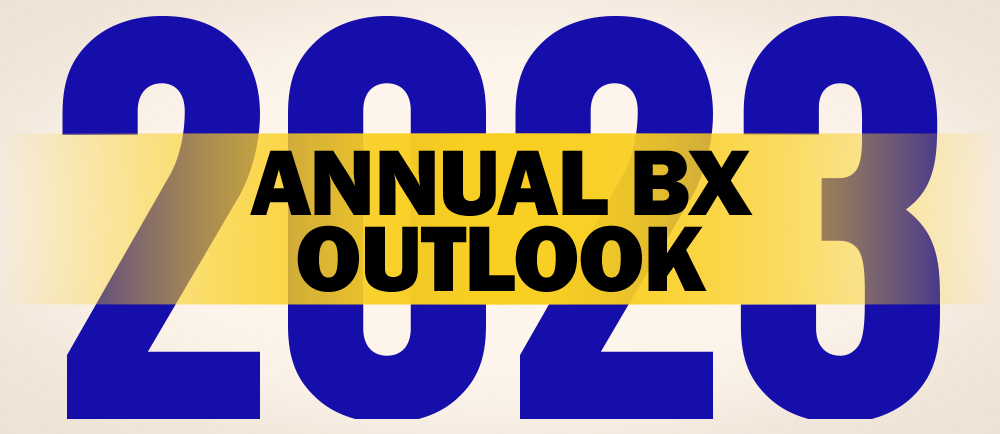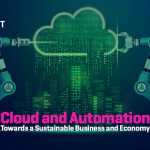Regulation of AI, enterprise-wide IT soon

Since the start of the pandemic, there have been significant changes in how employees interact with IT tools and teams. Across the board, enterprises are seeing more collaboration between non-IT employees and IT personnel, and this collaboration can be, at least in part, attributed to IT decentralisation and democratisation. In the increasingly digital-first, hybrid work environment, there are five predictions that are likely to come to fruition.
In the current digital-first, hybrid work environment, more employees than ever are deciding for themselves how their technologies will be chosen, deployed, and used, which has led to an increase in the use of low, no-code solutions. Also, AI models will continue to evolve; scalable platforms will be preferable to individual tools, and enterprises will make some tough hiring decisions in 2023.

In the wake of the Great Resignation, some companies assumed it would be easy to find new talent, but that really has not been the case, especially in regard to software-engineering workers. Factors like diversity and inclusion will continue to influence hiring decisions. Continuing to train, educate, and foster the careers of existing employees is the best course of action. That said, enterprises will have to choose for themselves how best to proceed.
AI models will continue to evolve
In 2023, there will be AI models with better precision, being built with a limited amount of training data. Techniques like few shots learning and transfer learning will see increased adoption, and the gap between natural language processing and computer vision will continue to blur. As an example, we are already seeing applications that allow us to search through a recording for a particular topic; then, by conversing with a chatbot, we are brought to the relevant timestamps.
AI regulation is also on the horizon. Just like the data privacy legislation, this regulation will come from the European Union. Set to become law in 2023, the EU’s AI Act could start being enforced as early as 2024.
Enterprise-IT will evolve into enterprise-wide IT
The decentralisation of IT personnel will continue. Not only will most enterprises have a centralised IT group to handle requirements like systems deployment, cybersecurity, compliance, and threat detection, but these enterprises will also have IT personnel throughout the organisational chart, addressing specialised business-driven needs as they arise.
As technological expertise continues to permeate throughout enterprises, non-IT employees and IT-adjacent service delivery teams will use low, no-code platforms to build and deploy simple applications. According to a recent ManageEngine study – IT at Work: 2022 and Beyond, 42% of global IT decision makers believe that each department will have its own IT team in the next five years.
The tool versus platform debate will be laid to rest
Enterprises of varying sizes and maturity have made different choices, especially in regard to the management of their technology infrastructure. Some opted to go with a specialised tool for every problem; others invested in a platform that could expand to solve problems as they arose.
The platform option is far more efficient. Having a tool for every problem doesn’t help enterprises keep pace with changing demands. More and more enterprises will opt for the holistic, scalable platform approach to managing their technology infrastructure.
Unified service delivery designed for remote-first employees
Organisations will consolidate enterprise services on a unified service management platform, facilitating remote-first employees with a productive workspace—wherever these employees choose to work. In addition to IT knowledge resources commonly accessed from a single enterprise self-service portal, employees will increasingly be able to access and request services.
For example, the capacity to onboard remote employees, confirm corporate bookings, and submit travel expenses.
Technology talent will continue to be a challenge
The rapid evolution of technology and the changing business landscape has put pressure on businesses to find and retain talent; the question of whether enterprises should find fresh talent or reskill existing employees is one that enterprises will have to make.
Key takeaways
- In the wake of the Great Resignation, some companies assumed it would be easy to find new talent, but that really has not been the case.
- Continuing to train, educate, foster the careers of existing employees is the best course of action.
- Set to become law in 2023, EU’s AI Act could start being enforced as early as 2024.
- As technological expertise continues to permeate throughout enterprises, non-IT employees will use low, no-code platforms.
- The platform option is far more efficient and having a tool for every problem does not help enterprises.






